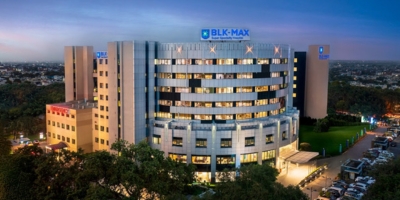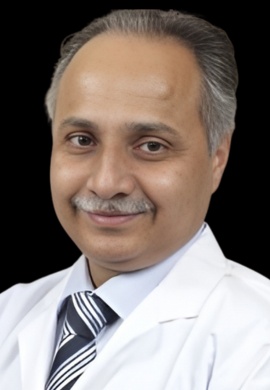Surgery for Pancreatic Cancer in India: Ultimate Guide to Cost, Hospitals, Surgeons
Don't let cancer win the battle. Get surgery for pancreatic cancer in India at low costs. Discover expert oncologists and hospitals with the right surgical program for you
Read on
What Is the Cost of Surgery for Pancreatic Cancer in India?
The cost of surgery for pancreatic cancer in India is USD $14,000. The cost of the same surgery in the US ranges from USD $55,000 to USD $61,000.
This makes India a highly attractive destination for affordable and high-quality medical care.
Here is a snapshot of the costs:
|
Treatment Type |
Cost in India (USD) |
Cost in the US (USD) |
| Surgery | $14,000 | $55,000 - $61,000[1] |
The cost includes:
- Surgery fee
- Hospitalization and meals (during the surgery as per the treatment plan)
- Primary oncology team consultation
- Medication as per the treatment plan
The cost does not include any additional parts which are beyond the scope of the treatment plan.
There are other treatment options as well that can be used in combination with surgery for cancer treatment. Check out the costs below.
Cost of Alternative Treatments for Pancreatic Cancer
Pancreatic cancer can be treated through various methods apart from surgery. These include:
- Radiation Therapy: Uses high-energy radiation to kill cancer cells.
- Chemotherapy: Uses drugs to destroy cancer cells.
- Immunotherapy: Boosts the body's immune system to fight cancer cells. Know the complete guide to Immunotherapy for Cancer in India.
Here are the estimated costs for these treatments in India:
|
Treatment Type |
Cost in India (USD) |
Cost in the US (USD) |
| Chemotherapy | $250 - $300 | $9,000[2] |
| Radiation Therapy | $6,500 | $14,000[3] |
| Advanced immunotherapy like CAR T-cell therapy | $50,000 - $85,000 | $4,00,000[4] |
Check out our article on Immunotherapy for cancer in India to learn more about effective treatment options.
Here is more about the procedure of surgery for pancreatic cancer.
Procedure: Surgery for Pancreatic Cancer in India
Surgery for pancreatic cancer in India involves removing the tumor and affected tissues to prevent the spread of the disease.
The procedure is performed by highly skilled surgeons using advanced medical technologies in top-tier hospitals. Patients can expect comprehensive pre and post-operative care, ensuring a high standard of treatment and recovery.
Types of Surgery
Various surgical options are available for treating pancreatic cancer, including:
The Whipple procedure involves the removal of the head of the pancreas, part of the small intestine, the gallbladder, and the bile duct.
This complex surgery is primarily performed to treat tumors located in the head of the pancreas and is known for its potential to improve survival rates in pancreatic cancer patients.
A distal pancreatectomy involves the removal of the body and tail of the pancreas, often along with the spleen.
This surgery is typically used to treat tumors in the body or tail of the pancreas. It aims to eliminate cancerous tissues while preserving as much healthy pancreatic function as possible.
Total pancreatectomy is a procedure that involves removing the entire pancreas along with some surrounding organs, such as parts of the small intestine, bile duct, gallbladder, and sometimes the spleen.
This surgery is considered for patients with widespread pancreatic cancer or multiple tumors within the pancreas.
Palliative surgery is performed to relieve symptoms and improve the quality of life for patients with advanced pancreatic cancer.
Unlike curative surgeries, palliative procedures do not aim to remove all cancerous tissues but focus on alleviating symptoms such as pain, jaundice, or digestive issues.[5]
Want to know more about surgery as an option for other cancers, such as prostate cancer? Read our blog on Robotic Surgery for Prostate Cancer In India.
Precautions and Preparations Before the Surgery
- Undergo all required medical tests.
- Stop smoking and alcohol consumption.
- Follow specific dietary restrictions.
- Inform the doctor of any medications being taken.[6]
Recovery After Pancreatic Surgery
Recovery from pancreatic surgery typically takes several weeks to a few months, depending on the type and extent of the procedure. Patients will need to follow a specific diet, manage pain with medications, and attend regular follow-up appointments to monitor their health.
Physical activity should be gradually reintroduced, and patients may require support from healthcare professionals to manage any complications or side effects.
Adhering to post-operative care instructions is crucial for a successful recovery and to minimize the risk of infection or other issues.[7]
Side Effects of Pancreatic Surgery
Here are some of the side effects that can happen after pancreatic surgery
- Pain and discomfort
- Digestive problems
- Risk of infection
- Weight loss
- Fatigue[8]
Overview of Pancreatic Cancer
Pancreatic cancer is a serious disease that affects the pancreas, a crucial organ in the digestive system. Understanding the disease and available treatments is essential for patients and caregivers.
Pancreatic cancer begins in the tissues of the pancreas and can impact the body's ability to digest food and regulate blood sugar.
It affects both men and women, with a higher incidence in older adults.
Approximately 20% to 30% of chronic pancreatitis cases have no identifiable cause. This condition tends to affect men in their 30s and 40s.[9]
Surgery is used to treat pancreatic cancer primarily to remove the tumor and any affected tissues, which helps prevent the spread of cancer to other parts of the body. This intervention can improve survival chances, especially when the cancer is detected early and is localized.
During surgery for pancreatic cancer, the surgeon removes the cancerous part of the pancreas along with some surrounding tissues to ensure that no cancer cells are left behind. This removal aims to reduce the risk of cancer recurrence and improve long-term outcomes for the patient.
Global Perspective on Pancreatic Cancer
Pancreatic cancer is a formidable challenge globally, ranking 7th in cancer mortality worldwide.[10]
However, India is emerging as a hub for innovative pancreatic cancer treatment. While incidence rates in India are lower compared to the West, the country is making strides in advancing surgical techniques and developing novel biomarkers for early detection.
In contrast, the worldwide 5-year survival rate for pancreatic cancer patients is approximately 6%, with a range of 2% to 9%.
This indicates that India's success rates are significantly higher compared to the global average.[12]
With its skilled surgical teams, advanced treatment modalities, and innovative research, India is emerging as an affordable, high-quality destination for global patients seeking cutting-edge pancreatic cancer care.
Learn more about the success rate of surgery for pancreatic cancer in India in the next section.
Check out the best hospitals for pancreatic cancer treatment.
Best Hospital for Pancreatic Cancer Treatment in India
Several top hospitals in India specialize in pancreatic cancer treatment, offering advanced medical care and state-of-the-art facilities.

JCI-accredited, it is one of the largest private hospital. It ranks among the top 10 multi-specialty hospitals.
Dedicated services for medical tourists from over 100+ countries.
It serves local and international patients, specializing in orthopedic treatments, cancer, bariatric surgery, and cardiology with advanced, European-standard equipment.
- 60+ Years of Experience
- JCI Accredited
- NABH Accredited
- Offers advanced robotic surgical oncology, including a Dual Console Fellowship Training Programme for Robotic Surgical Oncology.
- Provides comprehensive cancer care with a focus on minimally invasive robotic surgery.

NABH-accredited, this hospital is a renowned 250-bed hospital in New Delhi.
The hospital is well-equipped with Tesla MRI and Cath Labs and 50+ critical beds. With this, it offers Orthopaedics, Cardiology, Urology, Neurology, Paediatrics, Obstetrics, and Gynaecology.
- NABH Accredited
- 300+ Doctors
- 22+ Departments
- One of India's leading healthcare providers with a network of 20 hospitals and 5000+ doctors.
- Offers CAR T-cell therapy, which has shown promising results.
- Provides a wide range of surgical and non-surgical cancer treatments.
These hospitals provide you with the best surgeons for your treatment. Check out more about them below.
Best Surgeons for Pancreatic Cancer in India
India boasts some of the best surgeons for pancreatic cancer, with extensive experience and expertise in oncological surgeries.

Dr. Surender Kumar Dabas( BLK-Max Super Speciality Hospital )
With over 20,000 robotic surgeries, Dr. Dabas is a renowned cancer surgeon, trained at the University of Chicago.
He specializes in surgical oncology and mentors surgeons globally to advance innovative cancer treatment techniques.
Education
- Maulana Azad Medical College, New Delhi.
- Lady Hardinge Medical College, New Delhi.
- National Board of Examination, India.
Memberships
- International Guild of Robotic & Endoscopic Head & Neck Surgery
- Indian Association of Surgical Oncology
- Robotic & Endoscopic Head - Neck Surgeons

Dr. Harit Chaturvedi( Max Super Speciality Hospital, Saket )
Dr. Harit Chaturvedi is the Chairman of Max Institute of Cancer Care.
He is also the Director of Surgical Oncology at Max Super Speciality Hospital, Saket.
He leads a team of over 80 oncologists and has performed surgeries at live workshops.
Dr. Chaturvedi has also supported cancer awareness and anti-tobacco campaigns for over a decade.
Education
Dr. M.G.R Medical University, Chennai, India.
Memberships
- Association of Surgeons of India
- Indian Association of Surgical Oncologists
- Association of Breast Surgeons of India (ABSI)

Dr. Nikhil Agrawal( BLK-Max Super Speciality Hospital )
Dr. Nikhil Agrawal is a Gastrointestinal & Hepato-Pancreatico-Biliary Surgical Oncologist.
Dr. Agrawal completed a fellowship in Laparoscopic Hepatobiliary and Pancreatic Surgery. He did so at Seoul National University Bundang Hospital, South Korea.
He is also a life member of the ASI and IASG.
Education
MCh (GI Surgery) at AIIMS, New Delhi, India
Memberships
- International Association of Surgeons, Gastroenterologists and Oncologists (IASGO)
- Society for Surgery of the Alimentary Tract, USA (SSAT)
- International Hepato-Pancreato-Biliary Association Indian Chapter (IHPBA)
Is Surgery for Pancreatic Cancer Safe in India?
Surgery for pancreatic cancer can be safe in India. However, it requires specialized care and expertise. Here are the key points:
Pancreatic cancer surgery, such as pancreatoduodenectomy (Whipple procedure), is a complex and high-risk operation. However, studies show that the outcomes can be excellent with proper centralization of care and experienced surgical teams.[13]
A recent study from India reported a low mortality rate for pancreatic surgery despite one-third of patients experiencing significant complications. This was attributed to the procedures being performed at a high-volume, specialized cancer center.[14]
Consensus guidelines from the Indian Council of Medical Research emphasize that pancreatic cancer should be treated at centers of excellence for better outcomes.[15]
MTC’s partner clinics are working on newer techniques like robotic and laparoscopic pancreatic surgery, which are being adopted in India and can improve outcomes by reducing complications and recovery time.
Why MTC Partners for Pancreatic Cancer Surgery?
MTC partners with top hospitals and highly experienced surgeons in India, ensuring access to the best medical care for pancreatic cancer treatment.
Our partners provide extensive support and care for international patients, including assistance with travel, accommodation, and follow-up care, ensuring a seamless treatment experience.
With specialized surgeons with over 3 decades of experience in oncology, MTC partners are making world-class medical care accessible to patients from around the globe.
Our partner clinics offer cutting-edge robotic surgical oncology, including a Dual Console Fellowship Training Programme for Robotic Surgical Oncology, ensuring the highest precision and better patient outcomes.
They offer a wide range of surgical and non-surgical cancer treatments, including innovative therapies like CAR T-cell therapy, which have shown promising results in treating various cancers.
Conclusion
Surgery for pancreatic cancer in India offers affordable, high-quality medical care with experienced surgeons and advanced facilities. With a high success rate, India is a safe and reliable destination for pancreatic cancer treatment.
FAQs
Surgery is one of the primary treatments for pancreatic cancer, especially if the tumor is localized and operable. However, it is not the only cure. Other treatments such as chemotherapy, radiation therapy, and targeted therapies can also play crucial roles, particularly in advanced stages or in combination with surgery.
Early signs of pancreatic cancer can include jaundice (yellowing of the skin and eyes), unexplained weight loss, abdominal pain that radiates to the back, loss of appetite, and new-onset diabetes. These symptoms can be subtle and often go unnoticed until the disease progresses.
The life expectancy after pancreas removal (pancreatectomy) varies based on several factors, including the stage of cancer, the patient's overall health, and the success of the surgery.
References
- NCBI: Pancreatic cancer treatment costs, including patient liability, by phase of care and treatment modality
- ASCO Publications: High Cost of Chimeric Antigen Receptor T-Cells: Challenges and Solutions
- Cancer Research UK: Types of surgery for pancreatic cancer
- VerywellHealth: Whipple Procedure: How to Prepare
- WebMD: Whipple Procedure: Will It Cure Pancreatic Cancer?
- IJMS: An epidemiological review of pancreatic cancer with special reference to India
- Pancreatic Cancer UK: Prognosis if you can have surgery
- ICMR: Consensus document for management of pancreatic cancer



